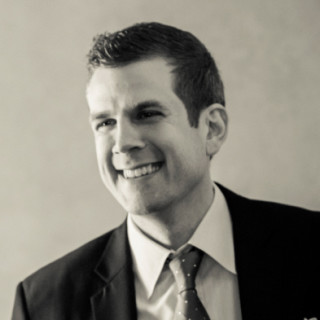 No matter your religion, the holiday season is the time of year that’s supposed to be full of joy. It is, after all, the most wonderful time of the year. The stretch from Thanksgiving through New Year’s is filled with holidays to celebrate. Non-hospital folks are often blessed with extended vacations. Often times, the corporate world pumps its breaks a bit and the season slows down. Combine that with holiday parties, gifts, and family, and who wouldn’t get fired up with excitement?
No matter your religion, the holiday season is the time of year that’s supposed to be full of joy. It is, after all, the most wonderful time of the year. The stretch from Thanksgiving through New Year’s is filled with holidays to celebrate. Non-hospital folks are often blessed with extended vacations. Often times, the corporate world pumps its breaks a bit and the season slows down. Combine that with holiday parties, gifts, and family, and who wouldn’t get fired up with excitement?
For many residents, this is not the most wonderful time of the year. On the surgical side of things, many patients are trying to use up the year’s deductible while surgeons cram 5 weeks of operating into 3.5 weeks of OR time. This means longer days, everyday. While their non-medical comrades are staring the down barrels of long, long weekends, many residents are lamenting their call shifts on Christmas and New Year’s. Training in cities far away from families, they are stranded on their own during these occasions that are built around togetherness. Combine these hardships with the coldest temperatures and least amount of daylight in the year, and December can quickly become the most difficult month for a resident.
What can we do?
Be there for each other.
It’s been said before but it bears repeating. No one is better suited to understanding the demands of residency and physician life than other residents and physicians. Your colleagues are going to be the ones who can empathize with the difficult situations you face. This can be a tall order—giving yourself emotionally to a colleague after giving most of yourself to your patients and what’s left of yourself to family and friends. It often feels like there’s only so much. It’s up to us to be strong for each other when colleagues are feeling weak. At some point, the roles will likely be reversed.
Forming and maintaining a support system, especially if your residency is far from home, is essential to resident well-being. This is why program directors are so keen on finding out why you want to train in City X, and how you will handle the gravity of residency far from family and friends. Luckily, between email, texts, and video chats, your home support system is reachable at the push of a button. But that’s no substitute for face-to-face real-life human contact. Strive to make connections in your place of training, both inside and outside the hospital. If you are healthier and in your best state of mind, your patient’s will be better served.
Look out for warning signs
The first quarter of the year (January - March) sees the second highest rate of resident suicide, ranking only behind the rude awakening of the July - September start of residency. After the holidays, the days are still short, the weather is still blah, and there is no holiday joy or break to look forward to. Back to putting your head down and trying to survive until spring.
Residents in their earliest phases of training (i.e., interns) are more likely to commit suicide. Greater attention should be paid to these early class years, especially during these high-risk times. Watch out for colleagues who are more withdrawn and less interested in caring for their patients.
Some struggles are less transparent than others. For instance, in the field of anesthesia, a warning sign for substance abuse is picking up extra shifts and calls, and going out of one’s way to cover for colleagues. Actions that would otherwise exemplify being a team-player can instead be indicative of medication diversion.
Be excellent to each other
How to lift up those around you? Being a good friend and a good person is an easy place to start. And if everyone takes that road, we will all have a sunnier environment to work in. It’s the low hanging fruit of improving workplace culture, and it doesn’t involve any meetings or calls to action.
Talk to your program director if you need help of any kind
The program director’s job is to support the residents. They are employed to make the residency program as fantastic as possible, and this naturally revolves around resident wellness. Gone are the days of requests for help being seen as signs of weakness. It takes maturity and self-awareness to realize when we are not at our best. We must be honest with ourselves and ask for help when needed. This can be anything on the spectrum of a few hours of non-clinical downtime to process a bad patient outcome, all the way to a request for a leave of absence to formally sort out personal struggles.
Depression proper is certainly not something that we can talk ourselves out of. Yet, there is value in taking some pride in our general quest. In his memoir, Man’s Search for Meaning, Holocaust survivor Victor Frankl reduced the meaning of living into three pillars: love, meaningful work, and courage during adversity. Residency encompasses the last two as much as any other profession. Hard work is not a sin, and difficult circumstances are not, by nature, “bad.” Use these opportunities to foster your growth and become a more complete person.
Brian Radvansky, MD is an anesthesiology and critical care resident and blogs at the Med School Tutors’ blog. He is also a 2018–2019 Doximity Author.
Image by Lin Shao-hua/ gettyimages







